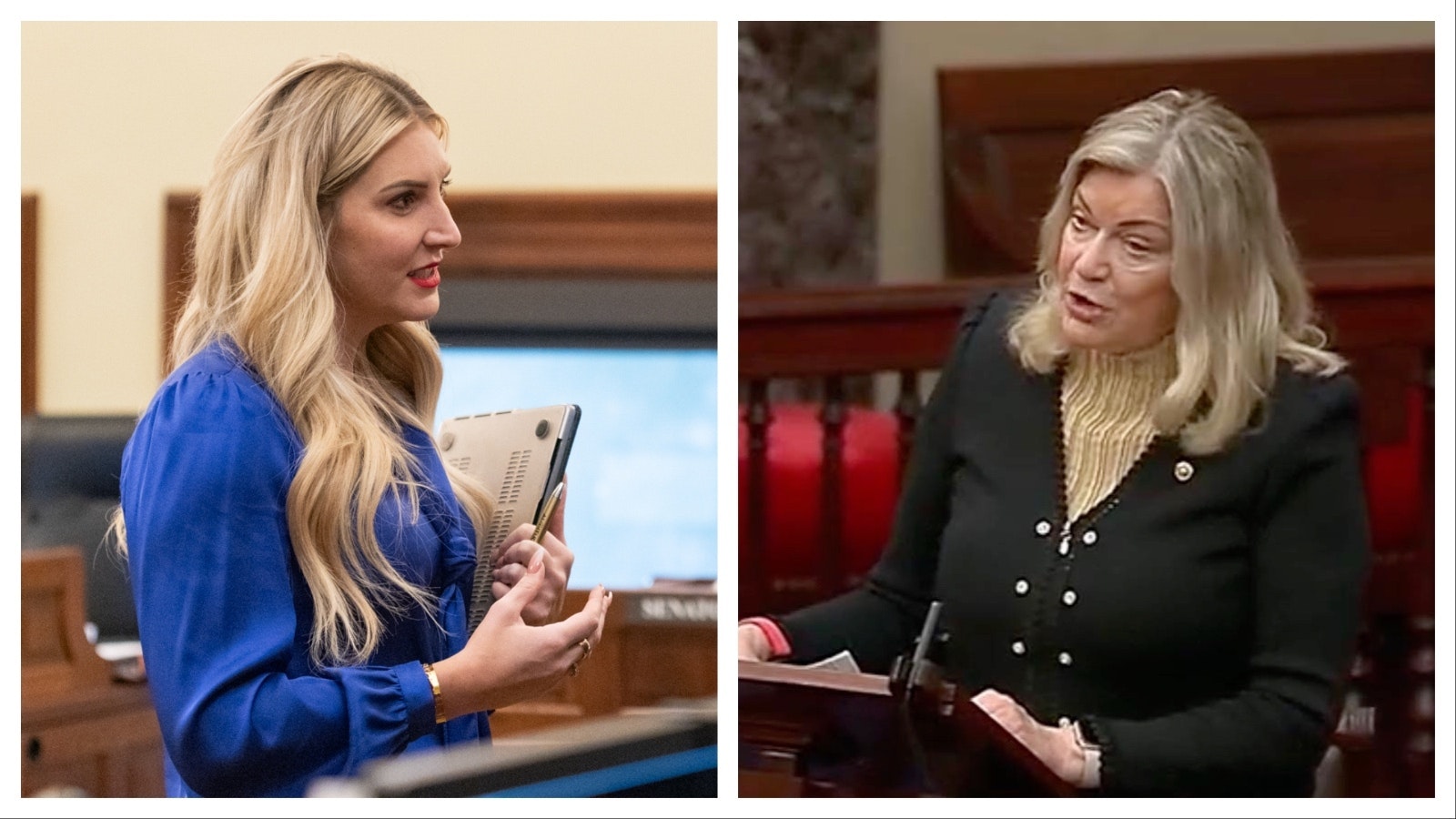A Torrington native and longtime congressional staffer has taken her new duties in a state office created to mediate disputes over the release of public documents.
Ruth Van Mark has been in the office of public records ombudsman, created by legislation approved by the Legislature earlier this year, since her appointment to the post by Gov. Mark Gordon on Sept. 30.
Van Mark returned to Wyoming in 2012 after serving in a number of positions in Washington, D.C., including stints as the legislative director for U.S. Sen. James Inhofe, R-Oklahoma, and as the minority staff director for the U.S. Senate Committee on Environment and Public Works.
In an interview with the Cowboy State Daily, Van Mark discussed, among other things, her vision for the office and how she will work to resolve disputes that sometimes arise when government entitles are asked to release documents.
Cowboy State Daily: What do you see as the main objective of your office?
Van Mark:
Well, when the governor interviewed me, he told me in no uncertain terms that he wants transparency. And that he wants the exemptions from the law … interpreted as narrowly as possible. Because he wants as much information available to the Wyoming public as possible and as quickly as possible.
So I see my job as carrying out that mandate. And setting it up to make it as easy as possible for people to contact the office, get us the information they need and access the information.
So one of the things we are doing to accomplish that is we are working, even today, on a button on the governor’s website that people can go to and hopefully get all their questions answered on how they can get a public record.
We’ll help direct them to the right agency. If they’ve contacted the agency and they have a problem, they can initiate a complaint with the ombudsman and we’ll respond to it.
Cowboy State Daily: How do you plan to accomplish that?
Van Mark:
I think it’s going to really depend on what comes to the office, because in addition to educating agencies on what it is the public records act requires of them, I can’t go in and just pick records and say ‘I’m going to make this public.’
So I have to wait until a citizen comes to me and says ‘I’ve requested this information, I believe it falls within the parameters of the public records act, I’m having problems.’ And then we can get to work and do that, and make it as available as possible.
So it’s a little difficult right now to say how we’re going to do it, we’re just going to have to … do it. So what I’m trying to do now is establish procedures.
On our website, we’re going to try to make it as user friendly as possible. We ask maybe somewhat leading questions: ‘Have you contacted the agency that holds the record? If you haven’t, this is how you do it.’
But the act is very clear that at any point in the process, the public can come to the ombudsman or the courts. So I can’t really say ‘You can’t come to me first,’ but I believe it will probably work better for the person requesting the information if they go to the agency that holds it first.
And I will give you one example. (It) was a simple little thing. (A woman) had contacted the agency that had the record and she hadn’t heard back from them. So I just called them and said ‘Hey, such and such has asked for such and such, could you give them a call?’ They called her right away, she got the information she wanted, she was happy. So it can be as simple as that.
Cowboy State Daily: What do you see as the main obstacles to the release of information?
Van Mark:
I’ve been talking to some of the agencies and asking them ‘What are some of your frustrations?’ I believe it’s not that they don’t want to release the documents, it’s that they have time constraints on them and (restraints on their) resources. The biggest concern people are going to have is complying within the deadlines established in the law.
But reading the law, it says you have to acknowledge (a request) within seven days and deliver within 30 days unless you contact the individual requesting the information and you work out a time frame.
This is still Wyoming, I think people are reasonable, I think that if agencies get in contact with the people who contacted them and they feel like they can’t produce the information within the prescribed time frame, they can work out a deal with the requester. And if that can’t happen, they can come to me and I’ll try to work out a deal that both can live with.
Cowboy State Daily: How will you handle disputes over document releases?
Van Mark:
One of the things I learned working 30 years on Capitol Hill in D.C. was how to bring two warring sides together, come up with something you can live with.
My last position on Capitol Hill was as the minority staff director of a Senate committee and in order for that committee to do its work, both sides of the aisle had to work together and we had to move forward. Sometimes, you have to put aside your emotions and see what the goal is and find the sweet spot to getting there.
This is building on that, where if a constituent or requester has requested information and the agency says ‘No, we don’t have to deliver that to you under the public records act,’ the first thing I have to do is determine what exactly the public records act says with respect to the request. And then from that point on, try to mediate a third path, so to speak, so that both sides can move forward.
Of course, there may come a time when it’s not possible and either the requester has to go to court or … give up on it.
The goal of this office is to always come up with a satisfactory result that both sides can live with. We want to avoid the court as much as possible.
Cowboy State Daily: Do you anticipate “growing pains” with this office?
Van Mark:
Oh, yes. And in fact, I have a couple people around the state I want to beta test my website on. Because that’s going to be one of the things that we’re going to put it out and I’m going to think ‘This answers every possible question that someone could raise.’ But sure enough, it won’t. And so that will be one thing that we’ll continually update and revise.
Certainly … the legislators are already looking at some potential amendments to the statute, so we’re going to have to incorporate anything they decide to change into the website or into how we interpret what’s going on.
And there’s going to be things that come up that I just can’t for the life of me imagine right now. And we’re just going to have to adapt and move forward.
So, yeah, there’s going to be growing pains big time. Anytime you establish an office from scratch, that’s just a given.
Hopefully what we’ll do, though, is have enough procedures or plans in place that we’ll be able to just take that and run with it and not have to worry about re-doing the whole organization, but we’ll be flexible enough to accommodate changes.





